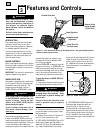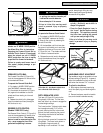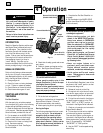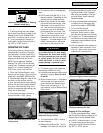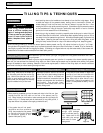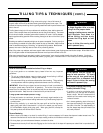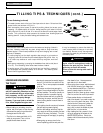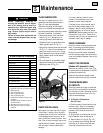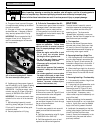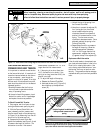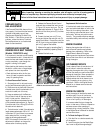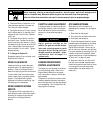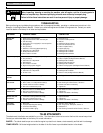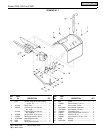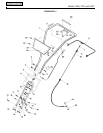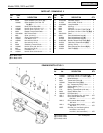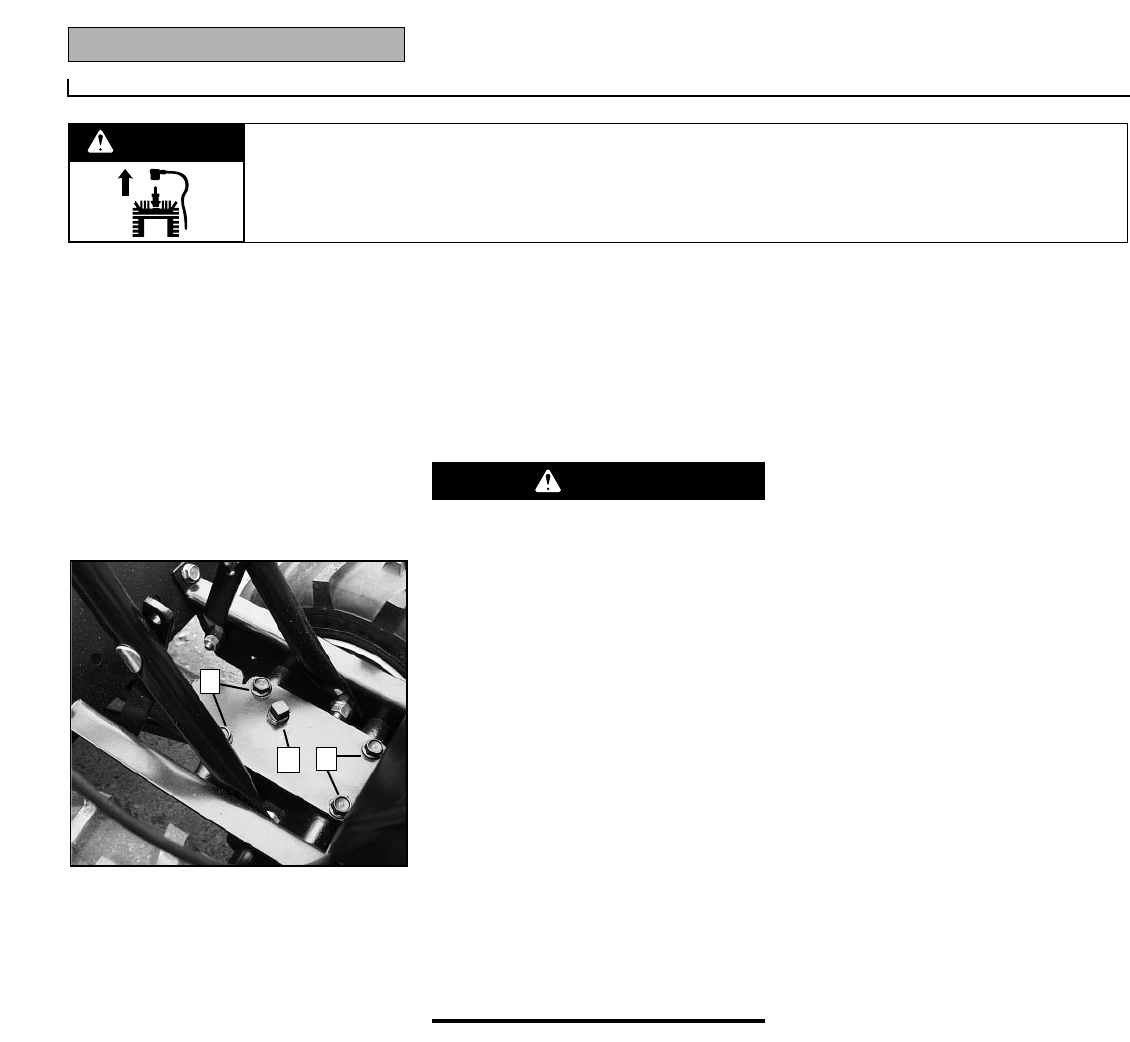
18 Section 5: Maintenance
Before inspecting, cleaning or servicing the machine, shut off engine, wait for all moving parts to
come to a complete stop, disconnect spark plug wire and move wire away from spark plug.
Failure to follow these instructions can result in serious personal injury or property damage.
WARNING
4. The gear oil level is correct if the gear
oil is approximately halfway up the side of
the main drive shaft.
5. If the gear oil level is low, add gear oil
as described next. If the gear oil level is
okay, securely replace the oil fill plug.
IMPORTANT: Do not operate the tiller if
the gear oil level is low. Doing so will
result in severe damage to the transmis-
sion components.
6. If adding only a few ounces of gear oil,
use API rated GL-4 or GL-5 gear oil having
a viscosity of SAE 140, SAE 85W-140 or
SAE 80W-90. If refilling an empty trans-
mission, use only GL-4 gear oil having a
viscosity of SAE 85W-140 or SAE 140.
IMPORTANT: Do not use automatic trans-
mission fluid or motor oil in the transmis-
sion.
7. While checking frequently to avoid
overfilling, slowly add gear oil into the oil
fill hole until it reaches the halfway point
on the drive shaft.
8. Securely replace the oil fill plug.
B. To Drain the Transmission Gear Oil:
The transmission gear oil does not need to
be changed unless it has been contami-
nated with dirt, sand or metal particles.
1. Drain gasoline from the fuel tank or run
the engine until the fuel tank is empty. See
“DANGER” statement below.
2. Drain the oil from the engine.
3. Remove four screws (B, Figure 5-2) and
remove transmission cover and gasket.
4. Remove the left-side wheel.
5. Tilt the left-side wheel shaft into a drain
pan and allow the gear oil to drain through
the top of the transmission.
6. Reinstall the wheel.
7. Install a new gasket (do not reuse old
gasket) and reinstall the transmission
cover.
8. Refill the transmission using GL-4 gear
oil (SAE 85W-140 or SAE 140).
9. Refill the engine with motor oil and
replenish the fuel tank with gasoline.
BOLO TINES
The bolo tines will wear with use and
should be inspected at the beginning of
each tilling season and after every 30
operating hours. The tines can be
replaced either individually or as a com-
plete set. See the Parts List pages for tine
identification and part numbers.
A. Tine Inspection:
With use, the tines will become shorter,
narrower and pointed. Badly worn tines
will result in a loss of tilling depth, and
reduced effectiveness when chopping up
and turning under organic matter.
B. Removing/Installing a Single Tine:
1. With the engine shut off and the spark
plug wire disconnected, remove the two
screws (A, Figure 5-3) and locknuts (B)
that attach a single tine to a tine holder. If
needed, use penetrating oil on the nuts.
2. When installing a single tine, be sure to
position it so that its cutting edge (sharp)
will enter the soil first as the tiller moves
forward.
C. Removing/Installing a Tine Assembly:
1. A tine assembly consists of eight tines
mounted on a tine holder.
2. If removing both tine assemblies, mark
them “left” and “right” before removal.
Remove the screw (C, Figure 5-3) and
locknut (D) that secure the tine assembly
to the tine shaft. If necessary, use a
rubber mallet to tap the tine assembly out-
ward off the shaft.
3. Before reinstalling the tine assembly,
inspect the tine shaft for rust, rough spots
or burrs. Lightly file or sand, as needed.
Apply a thin coat of grease to the shaft.
4. Install each tine assembly so that the
cutting (sharp) edge of the tines will enter
the soil first when the tiller moves
forward. Secure the tine assembly to the
tine shaft using the screw and locknut
previously removed.
Gasoline is highly flammable and its
vapors are explosive. Follow these
safety practices to prevent personal
injury or property damage from fire or
explosion.
• Allow the engine and muffler to cool
for at least two minutes before
draining the tiller’s gasoline tank.
• Do not allow open flames, sparks,
matches or smoking in the area.
• Wipe away spills and push tiller away
from spilled fuel.
• Use only an approved fuel container
and store it safely out of the reach of
children.
• Do not store gasoline in an area where
its vapors could reach an open flame
or spark, or where ignition sources are
present (such as hot water and space
heaters, furnaces, clothes dryers,
stoves, electric motors, etc.)
DANGER
Figure 5-2: Remove oil fill plug (A) to check
gear oil level and to add gear oil. Remove
four cover screws (B) to drain gear oil.
B
BA



